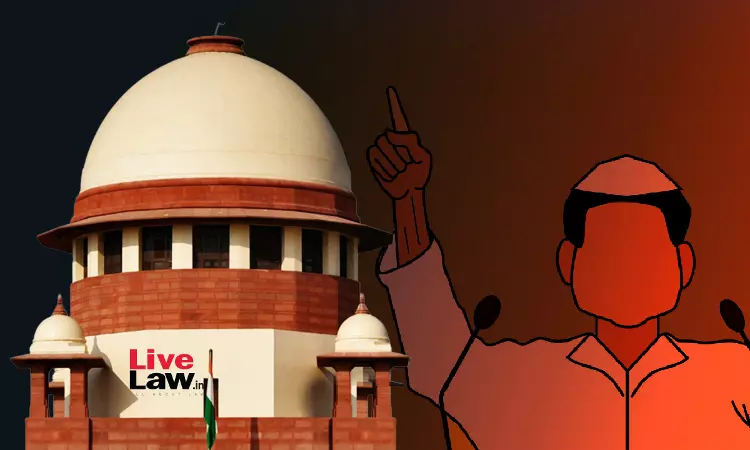Supreme Court Seeks ECI's Response On Plea Seeking Rules For Political Parties' Registration To Curb Use Of Black Money
Debby Jain
12 Sept 2025 4:02 PM IST

The Supreme Court today issued notice on a public interest litigation seeking direction to the Election Commission to frame rules for registration and regulation of political parties, in order to curb the menace of corruption and black money use in politics.
A bench of Justices Surya Kant and Joymalya Bagchi passed the order, after hearing petitioner-Advocate Ashwini Kumar Upadhyay. The bench asked him to implead all national political parties recognized by the Election Commission as party-respondents.
Briefly put, besides the direction to ECI, the PIL seeks a direction to the Union of India to review the Bill drafted by Justice MN Venkatachaliah Committee and take effective steps for reducing the menace of "Corruption, Casteism, Communalism, Criminalization, Linguism and Regionalism in politics".
Alternatively, it prays for a direction to the Law Commission to examine the best practices of developed countries and prepare a report on "Registration and Regulation of Political Parties" to reduce corruption and criminalization in politics.
Among other things, the petitioner emphasizes on two issues - (i) inner-party democracy (election/selection of office bearers or candidates) and (ii) transparency and accountability in funding of political parties and elections.
It is stated that the cause of action for the PIL arose after Income Tax authorities raided the offices of certain political parties viz. the Indian Social Party, Yuva Bharat Atma Nirbhar Dal and National Sarva Samaj Party which, as per Dainik Bhaskar reports, were found to be dealing in hawala transactions thereby converting black money into white for a commission.
The petitioner claims that 90% of political parties are formed for such purposes and collect donations in cash which are re-routed to the donors in white after deducting a commission. "The injury to the citizens is large...they never contest elections...sometimes the central government also launches schemes to legalize black money but deducts 33%", the plea states.
According to the petitioner, such bogus political parties are damaging the country by appointing criminals as office bearers, some of whom obtain police protection as well. It is stressed that most forms of organizations/organized activities are regulated by law in some or the other form, except political parties.
In this regard, the petitioner highlights that political parties hold constitutional and statutory status as well as have constitutional powers under the 10th Schedule. They give tickets to candidates and people vote on party symbols; as such, political parties are key instrumentalities of democratic governance.
In support of the prayers, the petitioner also underlines that the political parties are indirectly financed by the Central/State governments, which give them free airtime on All India Radio, allot them houses/other accommodations, give tax exemptions, etc. Yet, there is no law to regulate the parties' functioning.
At last, the petitioner illustrates the ECI's power over political parties and argues that they fall within the ambit of "Public Authority".
Case Title: ASHWINI KUMAR UPADHYAY Versus UNION OF INDIA AND ORS., W.P.(C) No. 850/2025
Click Here To Read/Download Order


